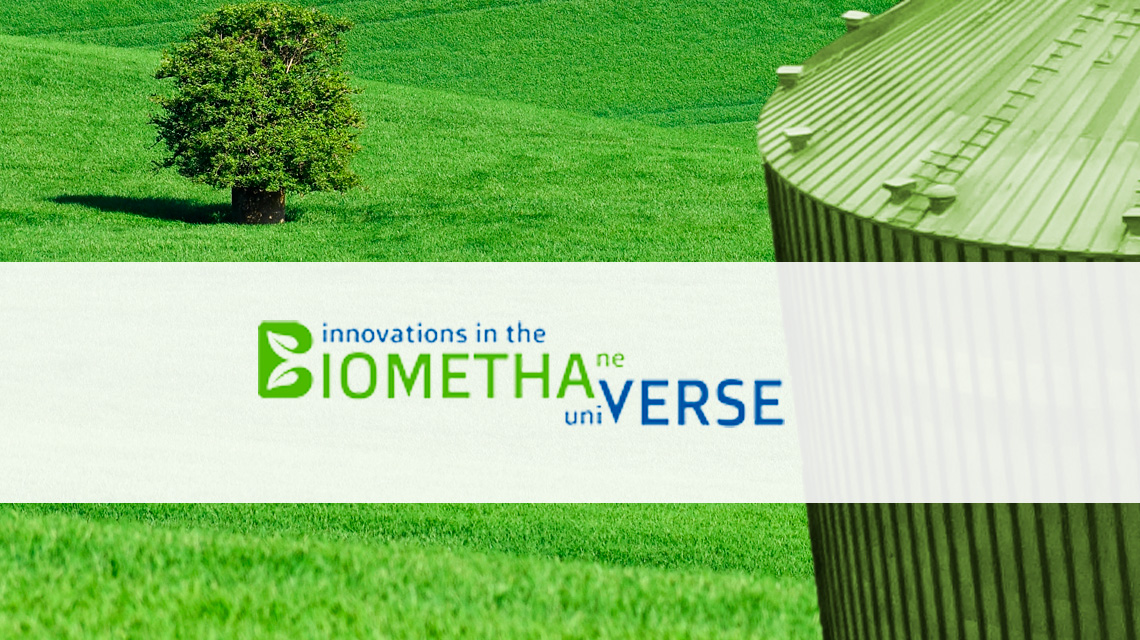Italian National Agency for New Technologies, Energy and Sustainable Economic Development

Energy: Biomethane, 10 million euro EU project for new production technologies kicks off
Increasing biomethane production[1] (+66%), reducing production costs (-44%), avoiding greenhouse gases emission (-113 million tons of CO2 equivalent) and creating new jobs (approximately 300,000) in Europe by 2030 are the objectives of the new 10 million euro European Biomethaverse project, which comprises 22 partners from 9 EU countries, including ENEA, ISINNOVA (coordinator), Politecnico di Milano, CAP Group, SIAD and The Italian Composting and Biogas Association in Italy.
“The project’s key objective is the construction of demonstration plants for biomethane production. But first we need to diversify the technological base, increase its production efficiency and cut costs. This gas is still expensive to produce and methanation technologies[2] are not mature and widespread yet” explained Alessandro Agostini, researcher at the ENEA Energy Storage, Batteries and Technologies for the Production and Use of Hydrogen Laboratory and contact person for the project together with Claudio Carbone and Alberto Giaconia.
“Ensuring that biomethane reaches the quality standards of the gas network at affordable production prices is crucial to enable a production increase, as foreseen by the plan Repower EU which launched the 'Biomethane Industrial Partnership (BIP)' initiative to achieve a 35 billion m3 target of sustainable biomethane by 2030”, he said. In this context, ENEA has the task of supporting developers evaluating and optimizing the technical-economic performance and environmental and social sustainability of the new technologies in view of their large-scale diffusion.
In the four and a half years envisaged, the Biomethaverse project will have to demonstrate five innovative ways of converting to biomethane in as many European countries (France, Greece, Sweden, Ukraine and Italy at the CAP Holding plant[3], in the province of Milan), under the coordination of the European Biogas Association.
Specifically, in four Biomethaverse demonstrators biogas or syngas will be combined with renewable hydrogen, while in the fifth renewable electricity is to be used directly, to increase the overall yield of biomethane produced by microorganisms. The new technologies (thermochemical, electro-biochemical and biological conversion) will be tested individually or combined and implemented in four plants already in operation using anaerobic digestion, and in one demonstration plant using gasification. “All the technologies demonstrated will represent significant innovations compared to the conventional upgrading of biogas to biomethane and, above all, will adopt a circular approach as concerns energy and materials. At the end of the project, they will all reach TRL 6-7, i.e. levels of technological maturity that are industrially significant or close to commercialization”, pointed out Agostini.
Biomethane is a renewable and sustainable gas representing an alternative to natural (fossil) gas and it can be produced locally; biogas production through anaerobic digestion produces digestate, a nutrient-rich substance which can be used as a fertiliser. These characteristics, and a lower carbon footprint than fossil fuels, make it a solid ally to fight climate change, as it can complement intermittent energy sources thanks to its widespread distribution network, storage capacity and versatility of use in practically all sectors, including those difficult to decouple from fossil fuels.
Notes
[1] Biomethane is a biogas derived gas which has undergone a refining and purification process called upgrading and whose concentration of CH4 exceeds 98%.It has the same characteristics and conditions of use of methane gas and is suitable for being injected into the natural gas grid.
[2] In the methanation process, hydrogen (H) combines with CO2 to produce biomethane.
[3] The technological tests will be integrated with a demonstration study of an innovative sludge pre-treatment which could increase biogas production by 20% and a system for cultivating microalgae from wastewater.
